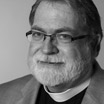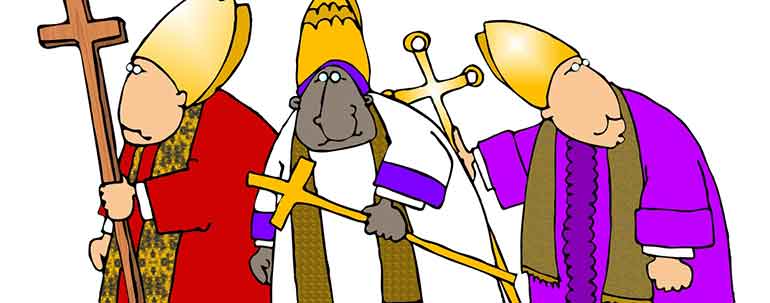March 10, 2017
Once upon a time a number of Anglican bishops and leaders from around the world were sharing on an email list-serve about how we as a Communion of Churches organize ourselves. As Anglicans we often describe ourselves as “Episcopally led and Synodically governed.” It’s a shorthand way of saying that we value the leadership of Bishops as successors to the Apostles in guarding the faith of the Church. It reminds us of the Apostle Paul himself who wrote to St. Timothy, his beloved “son” in the faith, and his successor:
“What you heard from me, keep as the pattern of sound teaching, with faith and love in Christ Jesus. Guard the good deposit that was entrusted to you—guard it with the help of the Holy Spirit who lives in us.” 2 Timothy 1:13-14 NIV
Some people would rather describe our organizing as about “Bishops in Synod,” emphasizing the full participation of the bishops with clergy and laity in the “Synod,” or gathering of the Church. “Synod” comes from the Greek words that mean “walking together.” And yet Anglicans still believe that, within this “walking together”- within a church government that provides checks and balances against the concentration of power over and against any one part of the Church (bishops, clergy and laity)- we always recognize the unique leadership of Bishops in faithfully teaching and guarding the faith, doctrine and worship/liturgy of the Church. No one else in the Church has this role and responsibility.
Back to that list serve… So when someone’s auto-correct or spell check changed “Episcopally led and Synodically governed” to “Episodically led and spasmodically governed,” every Bishop and leader on that thread had a great laugh! Unfortunately, at times, this joke strikes a little too close to the truth about Anglican leadership.
A few weeks ago, the Church of England’s General Synod refused to “take note” of its Bishops’ report on human sexuality (Misc 2055). The report, more or less, affirmed traditional/Biblical marriage. The Synod’s refusal was, in a way, a rebuke of the teaching authority of its Bishops. As the Chairman of GAFCON, Archbishop Nicholas Okoh of Nigeria noted in his March letter following this vote that the response of the Archbishops of Canterbury and York seemed to “face both ways.” In one breath they drew upon the traditional and Biblical teaching of marriage as between one man and one woman. But in the next they called for a “radical Christian inclusion” which draws upon the authority of the 21st century understanding of being human and being sexual.
Instead of a “pattern of sound teaching” from the highest Bishops (Archbishops) in the Mother Church of England, we have a contradiction entrenched by the doors the Archbishops have opened to an authority other than God’s word, the Bible. “The result,” writes Archbishop Okoh, “is that the historical and Biblical mind of the Church, as expressed by the bishops of the Anglican Communion in Lambeth Resolution I.10 in 1998 [limiting sexual expression to marriage between one man and one woman in marriage, chastity in all other cases, and no blessings of same sex unions] has now been downgraded to something provisional and secondary.”
Not long ago Richard John Neuhas offered his axiom on “The Unhappy fate of Optional Orthodoxy” in First Things: “Where orthodoxy is optional, orthodoxy will sooner or later be proscribed.” I’m sure many of you have heard that axiom before, but it’s well worth reading why Neuhaus believed it to be so:
“Some otherwise bright people have indicated their puzzlement with that axiom but it seems to me, well, axiomatic. Orthodoxy, no matter how politely expressed, suggests that there is a right and a wrong, a true and a false, about things. When orthodoxy is optional, it is admitted under a rule of liberal tolerance that cannot help but be intolerant of talk about right and wrong, true and false. It is therefore a conditional admission, depending upon orthodoxy’s good behavior. The orthodox may be permitted to believe this or that and to do this or that as a matter of sufferance, allowing them to indulge their inclination, preference, or personal taste. But it is an intolerable violation of the etiquette by which one is tolerated if one has the effrontery to propose that this or that is normative for others.”
You know, the mind of Jesus was never “spasmodic.” Take a close look at the mind of Christ in Philippians 2:5-11 and you will see a steady, relentless descent into greatness. We call it incarnation, and it was never two-faced. Instead, it was true-faced. In his human face, Jesus reflected the glory of God’s radically inclusive love for all people, at all times, in all places (2 Cor. 4:6), a love which took him step by step down from the glory of heaven to Golgotha where he took the place we should have taken on that terrible cross. There was never any confusion in Jesus’ mind about his mission. “For the Son of man came not to be served but to serve, and to give his life as a ransom for many.” (Mark 10:35)
Likewise, Jesus’ leadership was never “episodic.” He set his face to go to Jerusalem (Luke 9:51) and he never turned back. His moral teaching in the Sermon on the Mount (Matthew 5-7) is without peer, and at the same time it is utterly clear, consistent and authoritative—“You have heard it said…But I say to you…” When he addressed sexual expressions outside God’s word, he did so with incomparable mercy and compassion. But to the woman caught in adultery he said “neither do I condemn you…Go now and leave your life of sin.” (John 8:11). Apparently Jesus had the intolerant effrontery to propose that her behavior was sin, that she should repent, and leave that life behind. On other occasions, he had the intolerant effrontery to suggest that his words were final and normative for all—and people responded by trying to throw him off a cliff! “But he walked right through the crowd and went on his way.” (Luke 4:28-30). Such was his constant, consistent and courageous leadership
What the Church needs now is not a “radical inclusion” or “maximum freedom” untethered from the authority of God’s word. What the Church needs now is leaders, especially Bishops, who will have the mind of Jesus Christ. When the mind of the Church is filled with the mind of Christ, it will be characterized not only by clear thinking, but by consistent teaching and faithful leadership. May we pray for the leaders of the Mother Church of England, and for all of the Churches of the Anglican Communion, that they may be filled with the mind of Jesus Christ—and nothing less.



